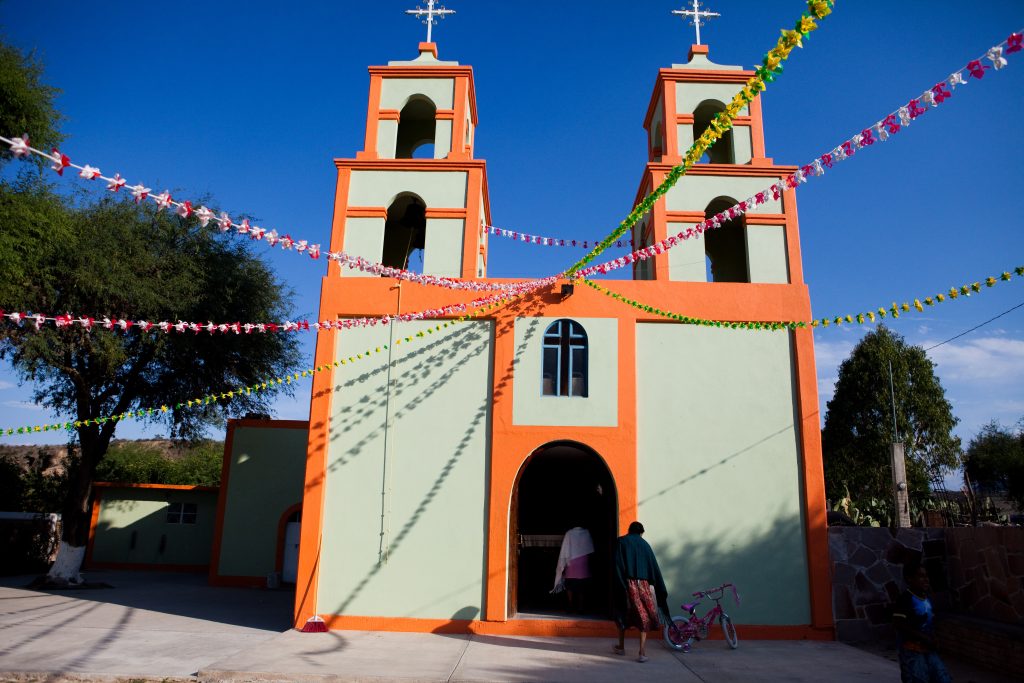
A church in the town of El Gusano. (photo by Brittany Peterson)

Beyond the headlines and policy papers about Mexican immigrants are the lives of men and women, boys and girls. Helping Carolina students better understand the human complexities of immigration is the mission of UNC’s Latino Migration Project.
The Latino Migration Project is a program of the Institute for the Study of the Americas and the Center for Global Initiatives.
The Project builds ties between Chapel Hill and the state of Guanajuato, Mexico, where many North Carolina immigrants have originated. It offers UNC students two programs — APPLES Global Course Guanajuato and Project Guanajuato — which provide a “transformative experience” involving service learning, global travel, internships and the development of close ties between UNC students, local immigrants and their families in Mexico, according to Hannah Gill, director of the Project.
Gill, an anthropologist who graduated from Carolina in 1999, teaches the APPLES course, which connects academics and research with public service.
“Students are required to volunteer throughout the semester with a local organization that works with immigrants in some way,” says Gill, who is the author of The Latino Migration Experience in North Carolina: New Roots in the Old North State (UNC Press, 2010). Students travel to Guanajuato over spring break, staying in the homes of local families. “The class offers a very in-depth experience of migration from both sides of the border.”
“It’s really profound to make a connection in your hometown with someone who is from very far away and then go to their hometown and connect with their family,” Gill adds.
For the final class project, students interview immigrants they have met through their service experience, and Gill trains them in oral history methodology. The interviews are available online.
Project Guanajuato — a summer community development and internship experience for UNC students — was started in 2007 by students who participated in the APPLES course in collaboration with Nourish International, a student organization that addresses global poverty. Thanks to a partnership between the Latino Migration Project and Fundación Comunitaria del Bajio (FCB), a nonprofit in Mexico, UNC undergraduate and graduate students spend about six weeks each summer in Guanajuato, working in rural communities with high levels of emigration to the U.S. Last year, students helped teach English, recreation, arts and dance classes at local elementary and high schools, and they lived with local families.
Guile Contreras ’14, whose parents are from El Salvador, grew up in Siler City, N.C. He participated in Project Guanajuato the summer after his first year at Carolina and became a trip leader the following summer.
“Students who go through Project Guanajuato get a new image of Mexico,” says Contreras. “In the long term, they have a better understanding of immigrants and why people emigrate, beyond [just] talking about it in class.”
Gill says that Guanajuato programs “educate and train students to be able to understand the complexities of migration which are usually glossed over in the public context.”
Students are gaining the skills they need to deal with demographic changes in their community, she adds. More than half of the students who have participated in the program since 2007 are first- or second-generation immigrants or minorities.
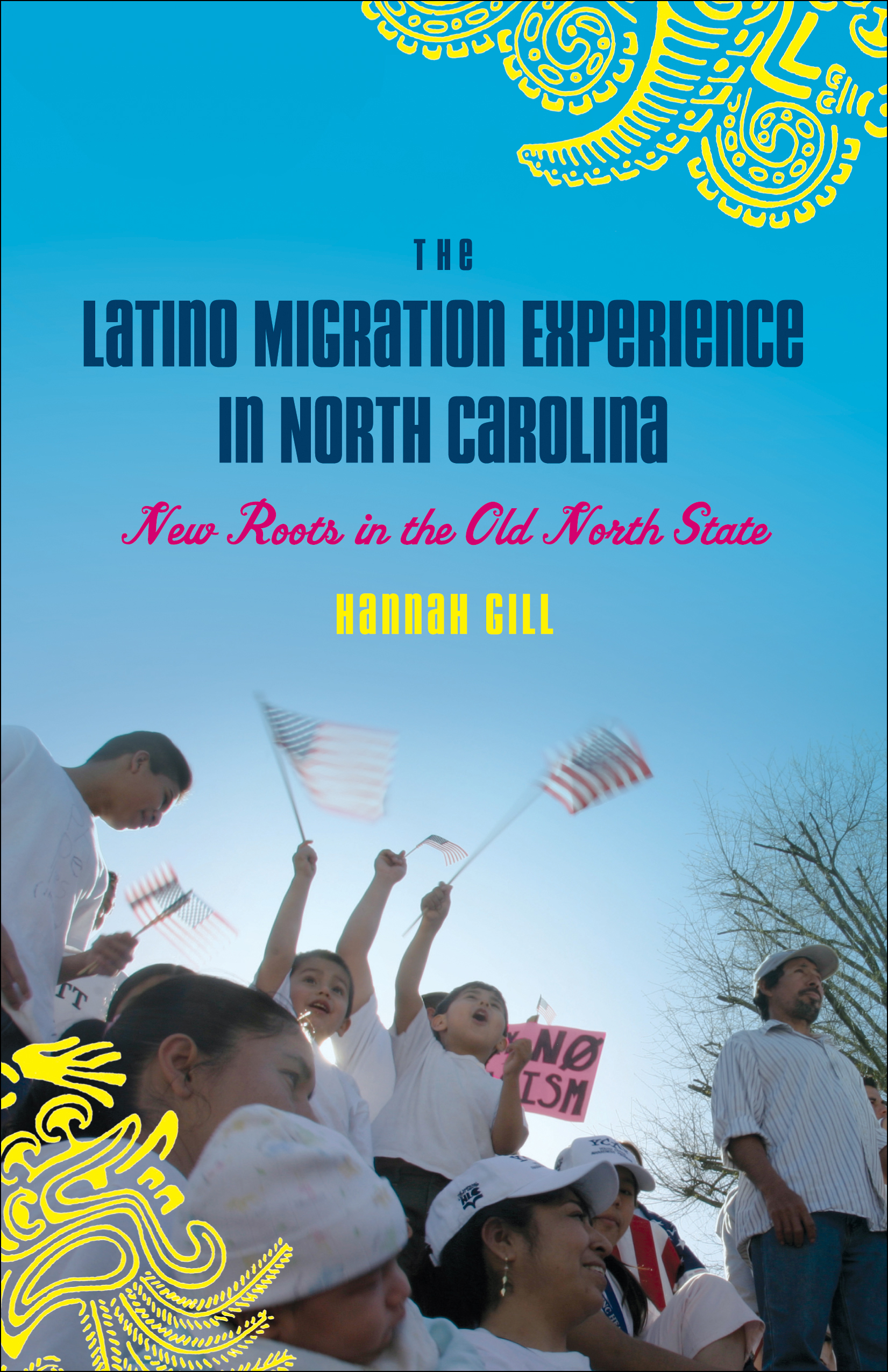
“The course gives them the skills and training to understand the social and historical context for their own personal experience,” Gill says.
Gill wants to empower students to become leaders in North Carolina.
“I want students who are underrepresented in leadership throughout the state to be able to advocate for themselves and have the same opportunities as everyone else.”
The impact of Guanajuato programs on students’ professional lives is significant. About 70 percent of the program’s alumni work in a field affected by migration — the majority in K-12 education, public health or law.
“This program helps them think about how they can apply their own personal interests, and even their own migration stories, to a career in this field,” says Gill. “It strengthens relationships between North Carolina and Guanajuato.”
Read more about two students’ experiences with Guanajuato programs below:
Providing eye car to immigrants
As the son of parents who emigrated to the U.S. from India, Atif Mohiuddin ’08 has a personal understanding of the immigrant experience.
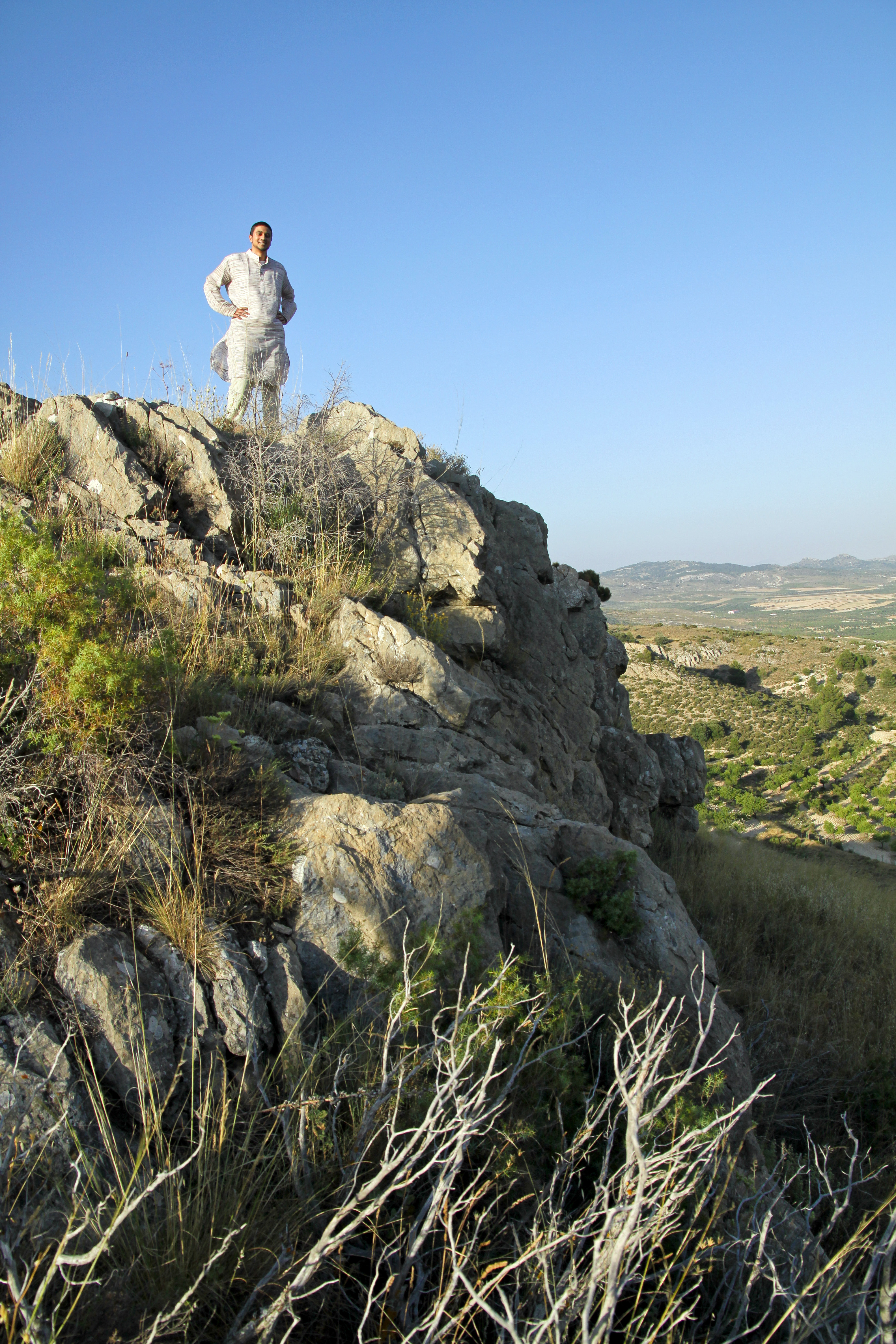
His passion for helping immigrant communities was kindled by his work as a health educator with the large Guatemalan community in Morganton, near his western North Carolina hometown of Valdese. And that commitment was further cemented after being a member of the inaugural class of APPLES Guanajuato taught by Hannah Gill.
“Hannah’s class was the embodiment of what I had been searching for,” says Mohiuddin. “The course gave me emotional connections that create change in people’s hearts and minds.”
Mohiuddin created an interdisciplinary major in migration and diaspora studies, so that he could better understand the perspective of immigrants.
His commitment to serving immigrants continues as he trains to be an ophthalmologist. As a medical student at The George Washington University, from which he graduated in May 2013, Mohiuddin was president of Student Sight Savers, which organizes and runs eye screenings for underserved immigrant communities in Washington, D.C., and Virginia.
“There are not a lot of eye specialists who focus on these populations, which are at increased risk for glaucoma and diabetic eye disease,” he says.
“My time in Guanajuato made me even more passionate about giving back to immigrant communities,” adds Mohiuddin. “[Wherever I live], I know that I’ll be active in providing eye health care within these communities.”
A career in public interest law
Guanajuato Connections helped define Sarah Plastino’s career path.
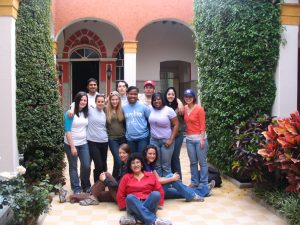
“Hannah’s mentorship and my experiences with immigrants in North Carolina and Guanajuato motivated me to continue with immigration advocacy work after college,” says Plastino ’07, a public interest attorney in Newark, N.J.
“I provide free legal services to low-income immigrants facing deportation,” she said. “At present, my clients are all children.” Plastino cites the huge unmet need for legal services in deportation proceedings.
She wants to ensure that more immigrants have legal representation so that they understand their rights and get a fair hearing.
“In the summer after my junior year, I traveled with Hannah to Mexico to do my own research,” says Plastino. Her research was supported by a Burch Fellowship from UNC. “I interviewed family members of people who had emigrated to Chapel Hill and also returned migrants who had lived and worked in Chapel Hill so I could understand the effect of U.S. immigration policy on them.”
That experience was so powerful that Plastino and Gill added a travel component to the Latin American Immigrant Perspectives course Gill was teaching. Plastino served as the student leader for the course’s first spring break trip in 2007.
“The trip engages students in service related to immigration, but it also gives them a better understanding of the cross-border and local/global aspects of immigration,” says Plastino. “There is a tendency to focus purely on the U.S. side of the equation.”
[ By Michele Lynn ]
Published in the Fall 2013 issue | Features
Read More
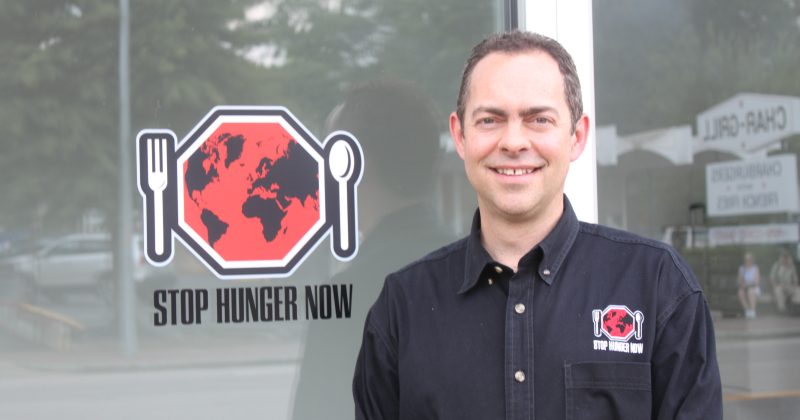
Rod Brooks tackles a global crisis, one meal at a time
UNC alumnus Rod Brooks ’89 is working to end world…
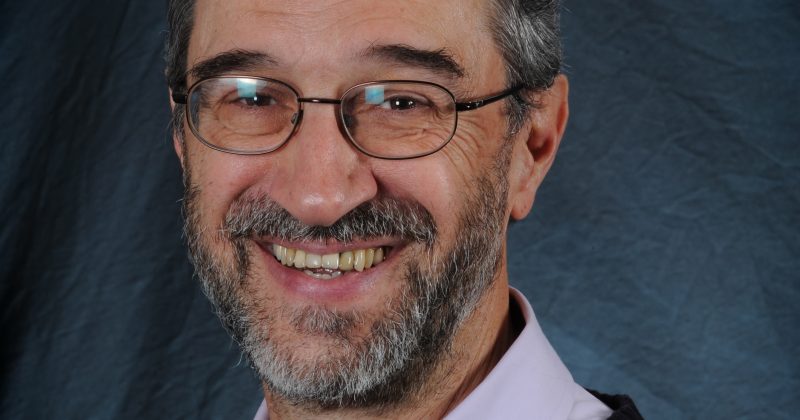
Aldrich wins lifetime entrepreneurship award
Sociologist Howard Aldrich has received a Lifetime Achievement Award from…
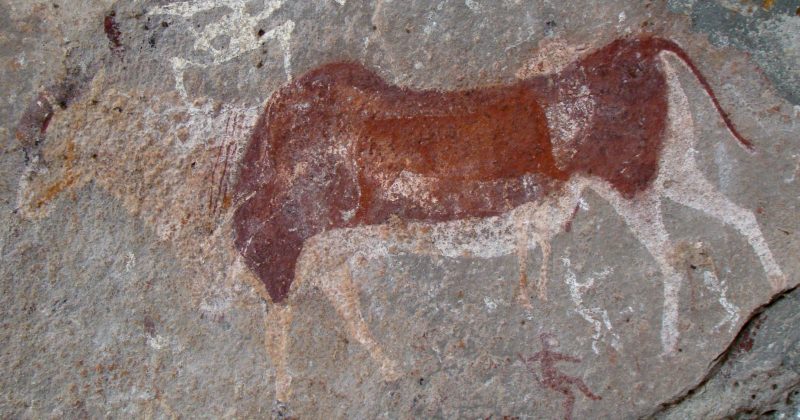
Exploring shamans and rock art in South Africa
UNC anthropologist Silvia Tomášková spent 2010 to 2011 in South…

